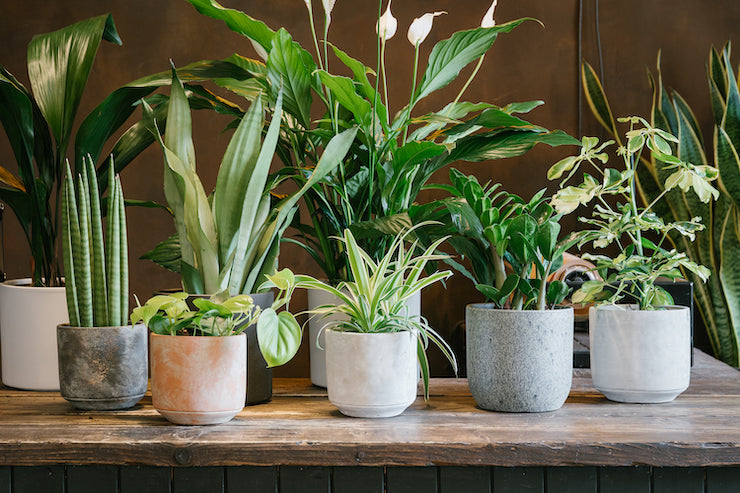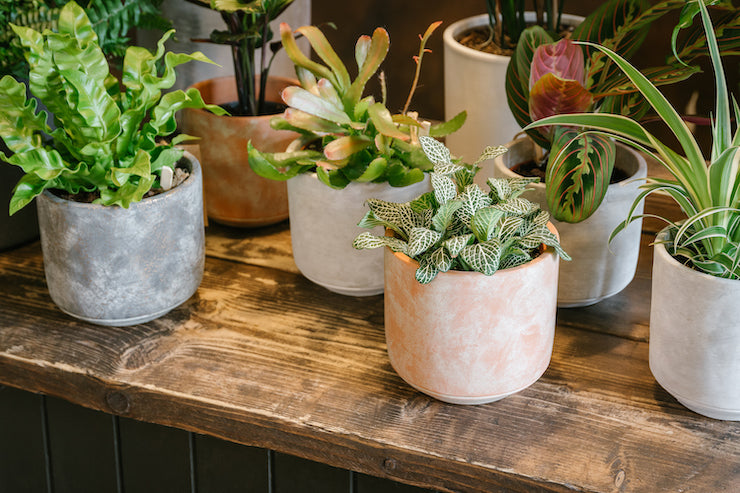
Do Houseplants Like Music? Exploring the Effects of Sound on Plant Growth
We all know how powerful music can be in our own lives—but have you ever wondered if your houseplants enjoy it too?
While plants don’t have ears or a nervous system like humans, scientific research shows that sound vibrations can influence plant growth in surprising ways. So, can music really help your plants thrive?
How Does Sound Affect Plant Growth?
Research suggests that sound waves can positively affect plants. Studies have shown improvements in seed germination, growth rate and gene expression when plants are exposed to certain types of sound.
Gentle, soothing sounds—especially classical music between 60–70 decibels—have been linked to increased height and faster growth compared to silence. These sound frequencies create mechanical vibrations that mimic natural environmental cues like wind or insects. A study by the University of Missouri in 2007 even found that plant roots can grow towards the sound of flowing water, demonstrating a remarkable sensitivity to vibration in soil.
Can Loud or Chaotic Noise Harm Plants?
Not all sound is helpful. Loud or aggressive noises like traffic, construction or heavy metal music have been shown to stress plants, disrupting water movement and damaging cell walls. However, in some studies, certain stress-inducing sound treatments have actually boosted plant resilience to drought and disease.
What Type of Music Do Houseplants Prefer?
If you’re planning a playlist for your indoor garden, opt for something gentle. Classical composers like Bach, Beethoven or Debussy, ambient instrumental music or nature sounds are thought to create the most beneficial soundscape for houseplants. You can even explore Plant Frequency Playlists, specifically curated for botanical wellbeing.
Houseplants That Respond Well to Sound
Some houseplants are believed to be more responsive to sound than others. If you want to try playing music for your plants, these are a great place to start:
-
Chlorophytum (Spider Plant)
-
Spathiphyllum (Peace Lily)
-
Pothos (Epipremnum aureum)
-
Sansevieria (Snake Plant)
-
Ficus lyrata (Fiddle Leaf Fig)
-
Aglaonema (Chinese Evergreen)
-
Aloe Vera
Does Talking to Your Plants Help Them Grow?
Many people swear by the benefits of chatting to their plants. While there’s no concrete evidence that talking directly improves plant health, there are a few reasons why it might help:
-
Sound vibrations from your voice can stimulate cellular activity
-
Carbon dioxide released while talking may aid photosynthesis
-
You’ll naturally spend more time observing and caring for your plants
In other words, even if the plants aren’t listening in the traditional sense, your attention helps them thrive.
Final Thoughts: Is Music a Form of Plant Care?
Although more research is needed, there’s growing evidence that plants respond to their sonic environment. From calming classical music to the rhythm of a human voice, sound may subtly affect how your plants grow, flower, and cope with stress.
So next time you're watering, pruning or just relaxing at home, try adding a gentle musical backdrop or even a friendly word or two. It might make your houseplants healthier, and your home feel even more alive.



